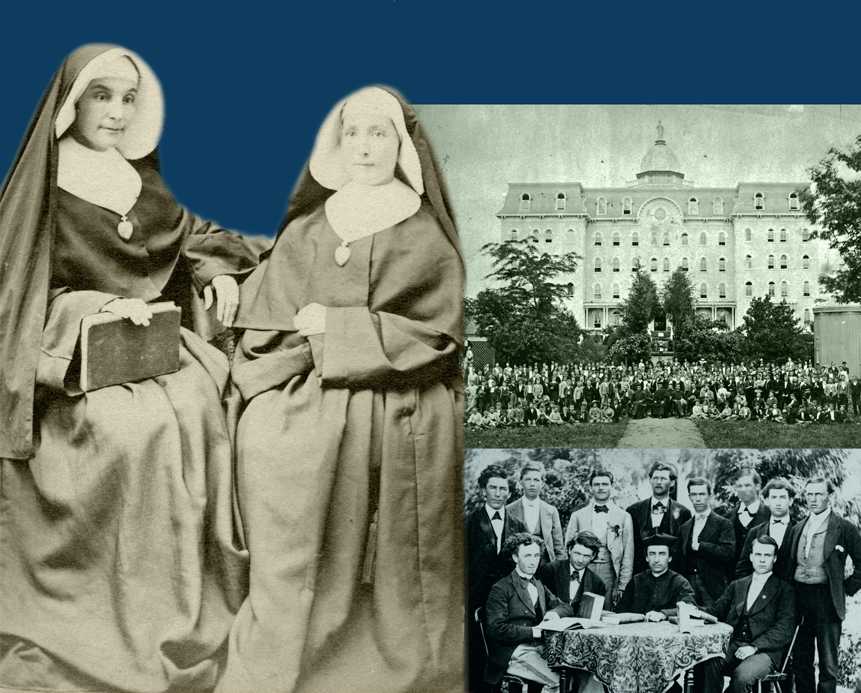

From the beginning of his life as a priest, Father Moreau was concerned about Catholic education. Because of the anti-Catholic attitudes of the French Revolution, the state disbanded religious orders, seized Church property, and closed almost all of the schools in the country -- because they were Catholic schools. When Moreau was two years old, as a result of diplomatic negotiations, the state began to allow secular clerics to teach again, as employees of the state. But the state did not return Church property or allow religious orders to function.
"[The state] sought to control the administration of all programs, and indeed to exercise a complete monopoly. Nonstate institutions were treated as rivals of the state and engaged in an inherently antisocial activity, to be tolerated only until the state's services were sufficiently organized and financed to absorb their facilities. . . . Father Moreau's attitude toward the secular power showed his common sense and his understanding of the dynamics of the situation. . . . Time and again he recorded his view that education must incorporate a genuine philosophy, and that the wrong attitudes formed in the state institutions encouraged the young to become skeptics or pantheists." (MacEoin, p. 83).

© Copyright 2007 by the Archives of the University of Notre Dame.